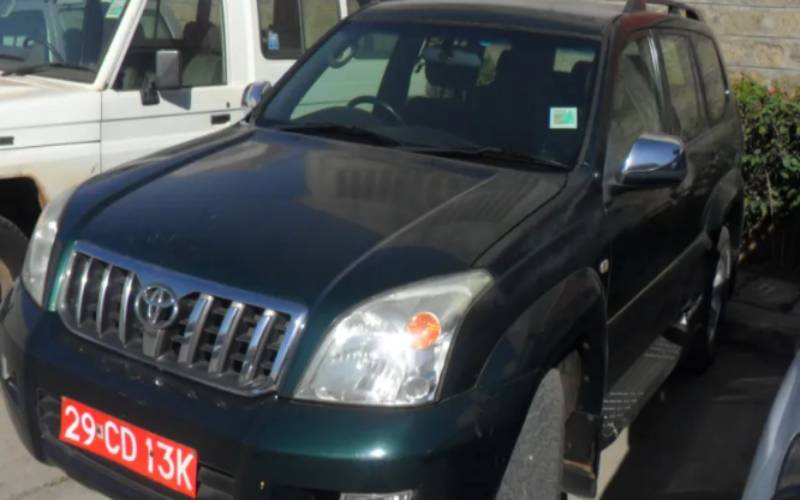×
The Standard e-Paper
Kenya’s Boldest Voice

A vehicle belonging to an officer of the US Embassy in Kenya. [Courtesy]
The red registration plate numbers on vehicles driven on Kenyan roads communicate two things – first, that the vehicle could be owned by a foreign embassy or international agency, and two, the identity of the embassy or agency that owns that vehicle.